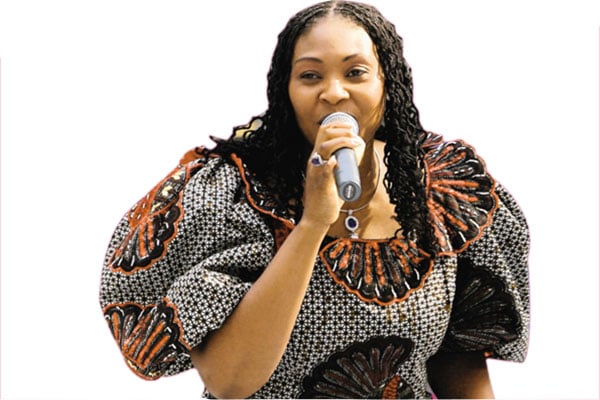Prime
When Umqombothi intoxicated Uganda

South African songstress Yvonne Chaka Chaka.
What you need to know:
- In the second and final part of a series titled Sung it Wrong, Gabriel Buule illuminates songs that gained popularity in Uganda despite or in fact because their lyrics and language were not alien to most Ugandans.
At one point, the song Umqombothi by South African songstress Yvonne Chaka Chaka was wrongly taken to be a Ugandan song. Jack Kinobe Sserunkuuma, a theatre legend, told Monitor that the song would often be used as a score in live theatre performances. This was especially so in scenes that depicted drunkenness or bar settings.
“In our home area in Buikwe, Umqombothi was a bar anthem that would be played over and over again,” he explains, adding, “You would listen to the same song on Radio Uganda and then watch it on Uganda Television.”
The song, he further reveals, would be called mukombooti by music lovers who interpolated the lyrics whenever they sung it.
“Owamaaso ameeru, wuko mukombooti” is the most popular line that most Ugandans use in place of the actual line in the lyrics, which is: “we madlamini, uph’umqombothi.” Per various Internet sources, the line is a praise slang for South Africa’s local alcohol. It draws parallels with a real spit fire.
Kinobe explains that it was easy for Ugandans to attach the bar to alcohol since it came with the video that had visuals glorifying alcohol in a gourd.
Chaka Chaka is a household name in Uganda. Her other song, Thank You Mr DJ, was interpolated by Ugandans thus: “Lwaali lwa mukaaga ku saawa mwenda, twakikuba, twakikuba nga nange kwendi.” This interpolation replaced the chorus: “Thank you Mr DJ for playing my song. Thank you, thank you, I have been waiting so long.”
Zamina mina
“Ekibe Sankaleba” is what most Ugandans will refer to as the song title of Zamina mina, alias Zangaléwa.
Contrary to the original lyrics where the verse is sung: “Edibe man no run, Edibe money no deh, edjibe na me fanam, edjibe djibe zangalewa,” the lyrics would be replaced with “mwaana gwe nakulaba, ng’oyambadde esuuti n’empeta. Ehe, Ekibe kibe eheee Ekibe kibe sankaleba.”
Kinobe shares that the wording would never have proper meaning or a story, but people would randomly attach their own words to suit the flow of the rhythm. It is understood that the languages present in the songs’ lyrics include Douala, French, Jamaican Patois, and the Cameroonian pidgin English.
The song originates from Cameroon, but the circumstances surrounding the time of the song’s origin are less clear. Some sources indicate that the lyrics are a lament from the point of view of a single soldier.
In the music video for the 1986 release, and in other performances of the song, performers often dress in military uniforms. The performers wear pith helmets and stuff their clothes to give the appearance of being well-off and associated with European colonial authorities. This appearance and the lyrics, according to some music historians, are a criticism of African military officers who reared an ugly head in post-colonial Africa.

Colombian singer Shakira sampled Zangalewa together with Freshly Ground—a South African Band. Photo/File
On May 7, 2010, Zangalewa was sampled by Colombian singer Shakira together with Freshly Ground—a South African Band—to create an epic official song of the 2010 FIFA World Cup. The tournament was held in South Africa.
Presumed to be obscene
There is a set of foreign songs that hit Ugandan market in yesteryears that rubbed parents wrongly after being presumed to be vulgar. Kinobe shares that it was never right for a child to sing Muzinaaaa Muzina di tata, e di mwana, E di mpeve santu Muzina di tata nzambe oooh, muzina— lines from the song by Congolese singer, Tabu Ley Rochereau.
Turns out the song Muzina carries spiritual and religious undertones. The lyrics discuss the importance and power of names, particularly in relation to God and the significance of praising him. The repetition of “Muzina di tata, e di mwana, e di mpeve santu” emphasises the notion of the name of God being holy and sacred.
Though baselessly presumed to be carrying adult content, the song has been popular and enjoyed a lot of airplay that presenters on CBS radio customised part of the lyrics thus: “Tangaka, ah Tangaka, Tangaka Bible Yeba bisengo yanse to sing Ca ba sa ehee… Ca ba sa.”
In the song, the lyrics “Tangaka, ah Tangaka, Tangaka Bible Yeba bisengo yanse” translates to “read ah! Read, read the Bible. Beware of the world’s riches.”
Similar to Muzina, the song Sawa ya Matako has been always presumed to be laced with adult content though details about the origin and the author of the song still remain scanty.
Kinobe says this was the same case with Angélique Kidjo’s Wombo Lombo.
“‘Oyimba biki,’ parents would ask; yet the song is like any other though it has Beninese culture and language,” Kinobe explains.
Singing one word
There are those foreign songs much loved by Ugandans but no one seems to have time to mind about the details of the lyrics. All they do is to pick a word of or a couple of lines.
1er Gaou, alias premier gaou, by Magic System is one of the famous songs to be sung by Ugandans but literally singing one line C’est dans ma galère que la go (pronouncing wangele wa in Luganda).
The song is by Magic System, an Ivorian Zouglou artists’ band, taken from the album of the same name. The title literally means “First Fool” in urban Abidjan.
Other song include Monique Seka’s Missounwa where most people usually sing one word Missounwa (singing mi suwa); Jacob Desvarieux and Kassav’s Ou Le, (singing wuula wuule); Dr Victor’s Tsoang Tsoang; among others.




